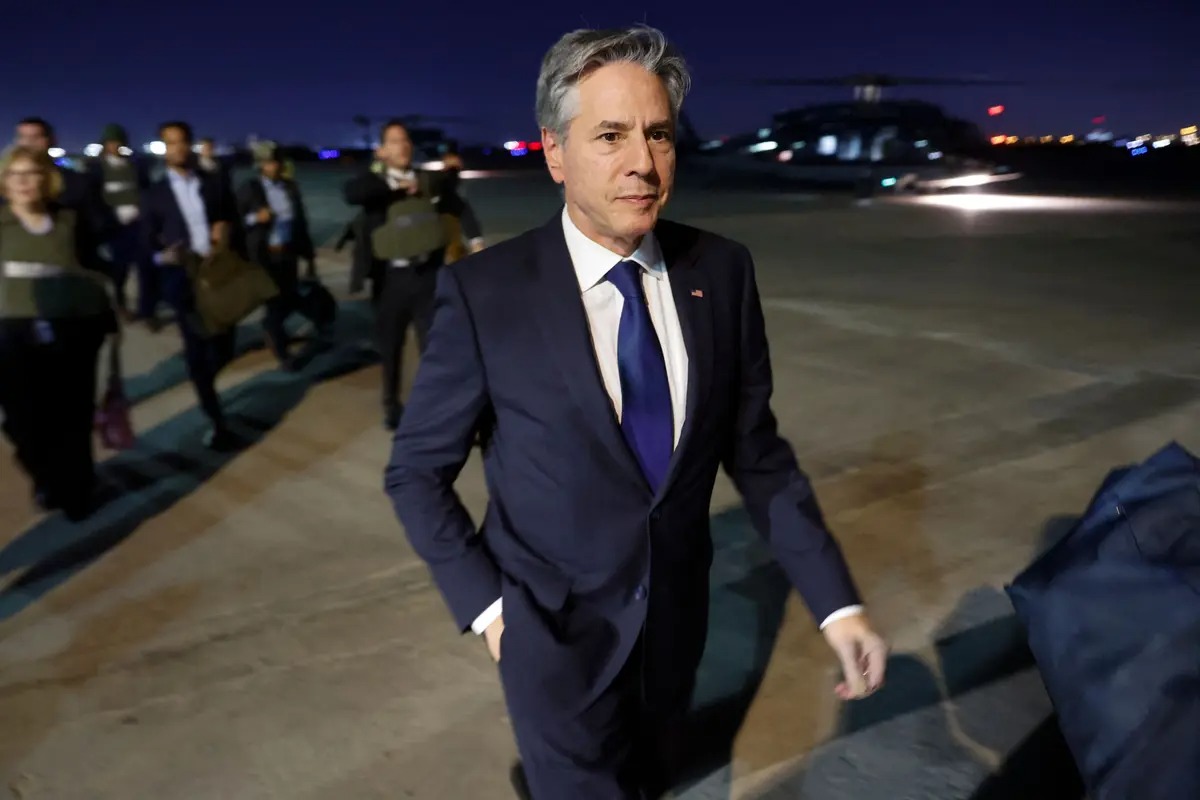The United States Secretary of State, Antony Blinken, embarked on an unannounced visit to Iraq on Sunday, igniting speculations about the escalating regional conflict in the Middle East. Blinken’s visit comes in the wake of Lebanon’s accusations against Israel for a deadly air raid that claimed the lives of four civilians, further complicating the already tense situation. This unexpected diplomatic move by the top US diplomat underscores the increasing concerns that the Israel-Hamas war could potentially lead to a broader regional conflict.
Talks with Iraqi Prime Minister Focus on Curbing Attacks on US Forces
During his surprise visit to Iraq, Antony Blinken engaged in crucial discussions with Iraqi Prime Minister Mohammed Shia al-Sudani. The primary focus of these talks revolved around Washington’s urgent need for Baghdad’s assistance in addressing the mounting attacks on US forces in the region, which have been attributed to Iran-backed groups. The Secretary of State described the meetings as “productive” and affirmed that Prime Minister al-Sudani was actively collaborating with Iraqi security forces to take necessary measures to tackle these attacks.
“This is a matter of Iraqi sovereignty,” Blinken emphasized. “No country wants to have militia groups engaged in violent activity. We have a shared purpose and commitment in trying to make sure that these attacks don’t happen,” he added. Prime Minister al-Sudani, whose government maintains close ties with Iran, condemned the attacks on US forces and echoed calls for a ceasefire in Gaza, underscoring “the urgency of containing the crisis and preventing its spread,” as confirmed by his office.
Israel-Hamas Conflict’s Impact on Middle East Diplomacy
The United States Pentagon has reported a significant increase in rocket and drone attacks on US forces in Iraq and Syria, with many of these assaults being claimed by a group known as the “Islamic Resistance in Iraq.” The surge in attacks coincided with the outbreak of hostilities between Israel and Hamas. In response to these mounting regional tensions, the US has intensified its diplomatic efforts in the Middle East, reaching out to various Arab countries and armed groups in the region.
Blinken’s visit to Iraq, which followed previous stops in Israel and Jordan, was marked by Lebanese officials’ allegations of an Israeli air raid that resulted in the tragic deaths of four civilians, including three children. This incident has further exacerbated the conflict dynamics along the Lebanon-Israel border. Hezbollah, the Lebanon-based armed group supported by Iran, issued a stark warning, stating that “the enemy will pay the price” for these attacks. These confrontations between Israel’s military and Hezbollah, along with Hamas, underscore the broader regional tensions in the Middle East.
Hezbollah Issues Warning as Blinken Continues Middle East Tour
Notably, on Friday, Hezbollah’s leader, Sayyed Hassan Nasrallah, cautioned that a broader regional conflict could not be ruled out, keeping “all scenarios open” as long as Israel continues its bombardment of Gaza. The Hamas-governed enclave reported a devastating toll, with officials stating that at least 9,770 people have lost their lives. Blinken’s next destination after Iraq was Turkey, where he was expected to engage in talks with his Turkish counterpart, Hakan Fidan.
However, amidst these diplomatic efforts, the Iran-backed group Kataib Hezbollah issued a warning, suggesting that Blinken’s visit could lead to “an unprecedented escalation.” Prime Minister al-Sudani is scheduled to embark on a regional tour that will take him to Iran and various Persian Gulf nations, further emphasizing the complexity and volatility of the current Middle East landscape.
As regional tensions continue to rise, Blinken’s surprise visit to Iraq has highlighted the urgency of diplomatic efforts to prevent the escalation of the Israel-Hamas conflict into a broader regional crisis. The situation remains highly dynamic, with the international community closely monitoring developments in the Middle East.
















